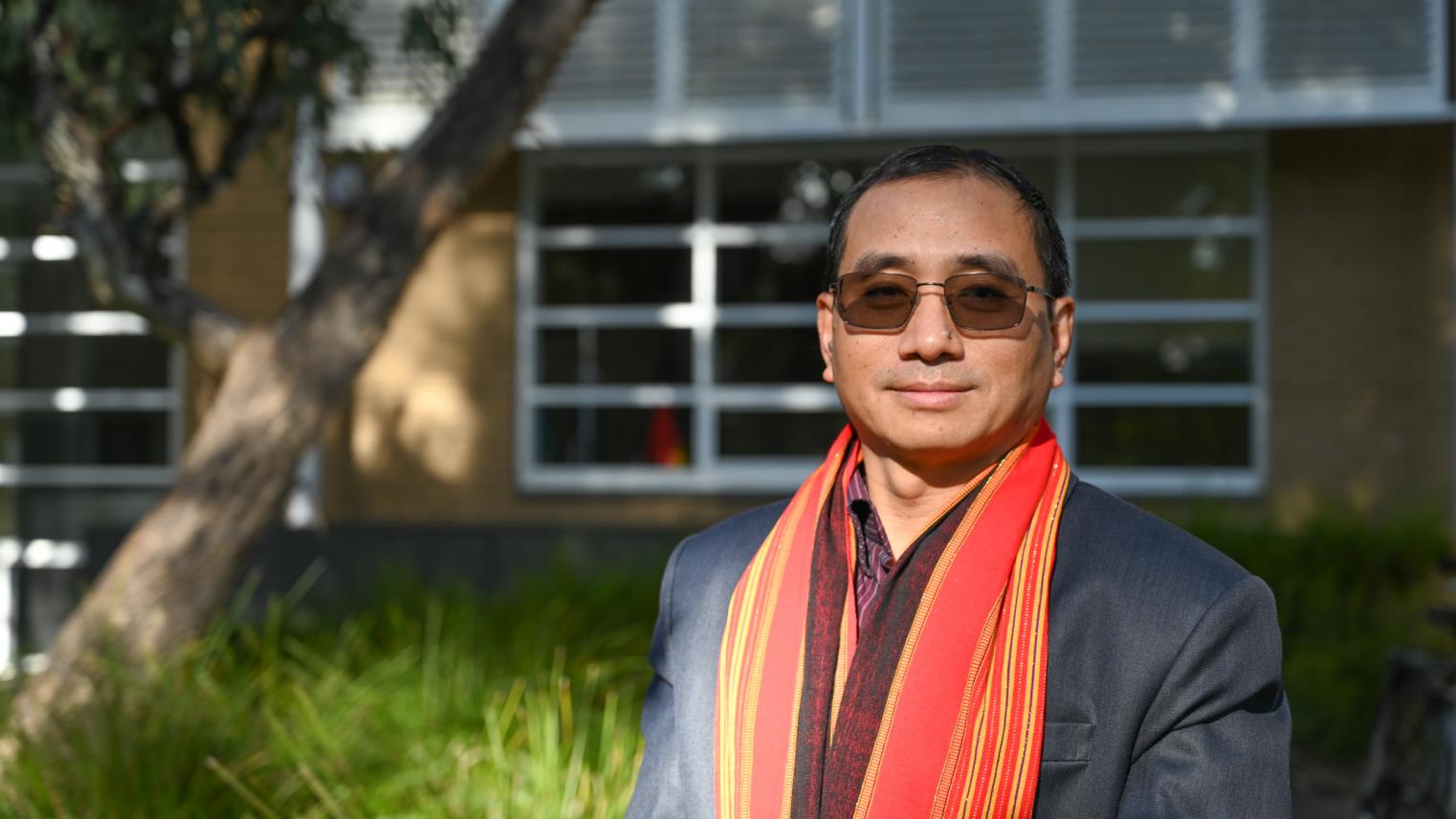Championing Indigenous voices: Binota's PhD journey

Binota Dhamai’s PhD journey is intricately woven with his cultural identity and dedication to advocating for human rights and Indigenous Peoples' rights. Hailing from the Tripura Indigenous community in Bangladesh’s Chittagong Hill Tracts (CHT), Binota has held various roles and responsibilities in national, regional and international forums, hoping to bring positive change.
Reflecting on his personal journey, Binota shared, "I am a conflict survivor, former refugee and displaced person from my native village since childhood. Our family has been displaced three times from ancestral land, crossing international borders twice to seek refuge in Tripura state, India—first in 1981 and again in 1986."
Before his PhD, Binota served as the Human Rights Program Coordinator at the Asia Indigenous Peoples Pact (AIPP) in Thailand. He managed human rights projects across 14 Asian countries, collaborating with 47 member organisations and visiting numerous Indigenous communities. These experiences exposed him firsthand to their struggles with discrimination, cultural threats and daily survival challenges, driving his decision to pursue doctoral studies at the Australian National University (ANU) School of Regulation and Global Governance (RegNet).
“My working experience and direct lessons from the Indigenous communities motivated me to engage with their issues. I saw pursuing higher degree research as a way to combine activism with academia,” he said.
Binota’s thesis focused on the intrastate conflict and peace agreement within the CHT, specifically examining the Chittagong Hill Tracts Accord (1997), addressing critical issues such as land dispute settlement, demilitarisation and special governance arrangements.
His research was driven by concern over the cascade of violence in the CHT, resulting from discrimination, injustice, exclusion, domination and militarisation. It explored the deep-rooted causes of generational violence that perpetuate a cycle of conflict and counter-responses, impacting Indigenous communities. He sought to understand how the CHT Accord of 1997 represents a significant effort to address these issues and promote lasting peace and stability.
Binota is immensely grateful to his supervisor, Professor Veronica Taylor, for her guidance and patience throughout his PhD journey. Her support, along with that of his supervision panel—Dr Imelda Deinla, Dr Virginia Marshall and Dr Debrah Clealand—was invaluable to him as a non-native English speaker.
Looking back on his PhD journey, Binota recalls both sweet and bitter moments. “While I was writing my thesis and reading literatures relating to conflict, power sharing, peace agreements, colonisation, decolonisation, autonomy and self-determination rights, my past often came back to me, bringing emotional memories,” he said.
However, the thought that his work could contribute to his community's future well-being inspired him. He also cherished the opportunity to meet people from diverse cultures, languages and academic disciplines within the College of Asia and Pacific and beyond. Binota is currently an expert member of the UN Expert Mechanism on the Rights of Indigenous Peoples (EMRIP), providing the UN Human Rights Council with expertise and advice on the matters of Indigenous Peoples human rights.
The vibrant academic community at RegNet has been crucial to Binota’s journey. “I have had the privilege of being surrounded by some of the kindest, most helpful and intellectually stimulating individuals any student could ever hope for,” he shared.
"This journey was one that I could not have possibly undertaken alone. As I embark on my professional life, I’m deeply grateful to all who have supported me. I proudly share my experiences at RegNet in international forums focused on human rights and global governance."
For aspiring PhD candidates, Binota offers valuable advice: "When I received my ANU offer, I called my father. He told me to always think about my community who helped me become who I am. This dedication and passion for the empowerment of Indigenous Peoples inspired my PhD journey. It's important to stay focused and remember your roots during such a life journey."
Congratulations, Binota, on your remarkable achievement and inspiring journey.